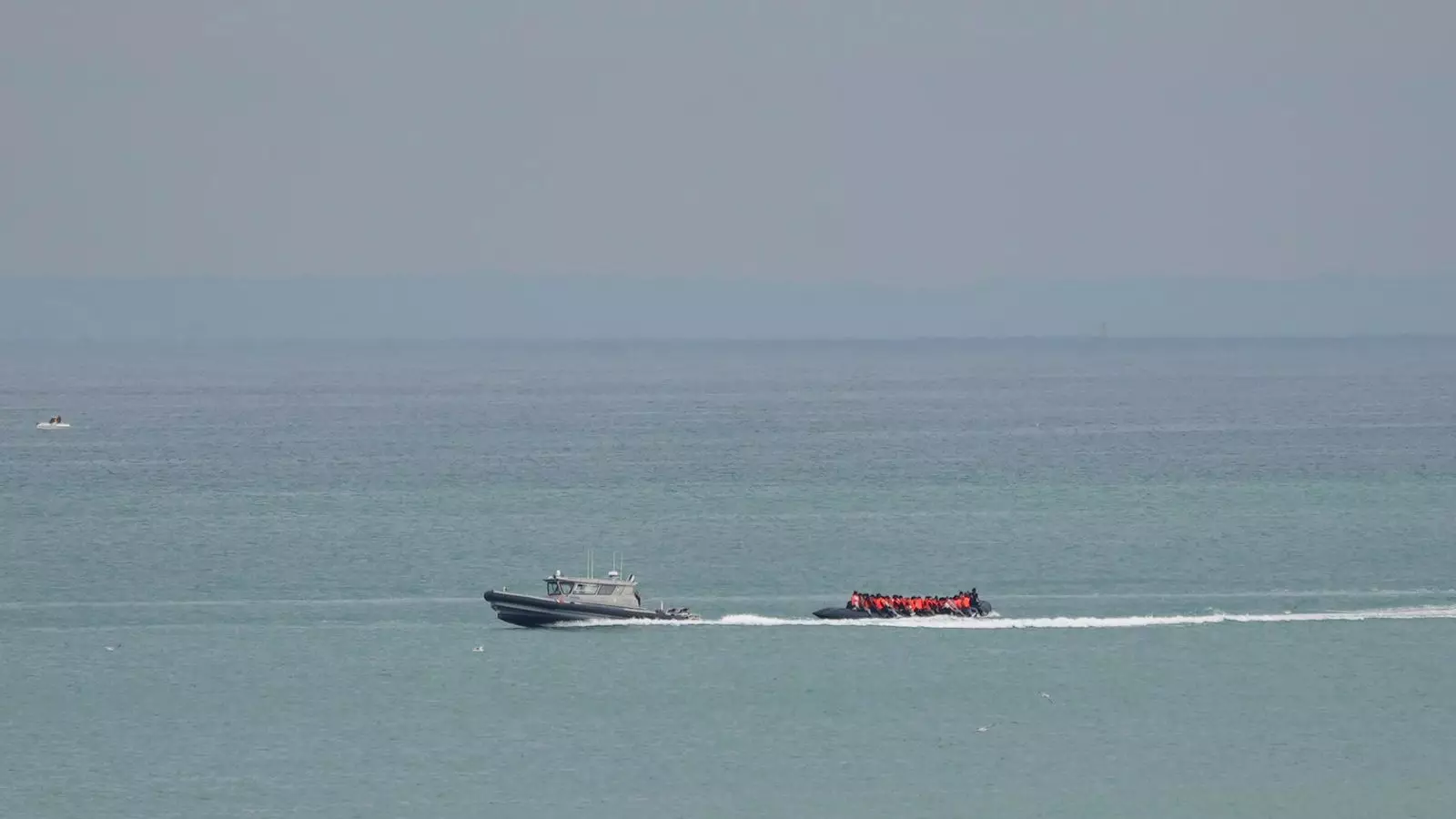In a deeply troubling incident, the English Channel has witnessed another tragedy with the deaths of at least eight migrants who were attempting the perilous journey from France to the UK. The grim event occurred near Ambleteuse, situated in the Pas-de-Calais region, during the early hours of the morning. French authorities confirmed that among the many who embarked on this treacherous crossing, approximately 45 survivors were saved, highlighting both the desperation of those attempting the journey and the continued risks associated with it.
In the same period, the French coastguard reported a series of successful rescues: around 200 individuals were rescued off the coast of Calais over the course of just 24 hours. This included significant numbers such as 55 migrants taken from a malfunctioning vessel near Le Portel and others saved from various distress signals detected across the coastline. This spate of rescues reflects the ongoing humanitarian crisis that has increasingly plagued the English Channel, drawing attention to the urgent need for comprehensive solutions.
The French authorities monitored 18 separate attempts to cross the English Channel one particular Saturday, underscoring an alarming trend in public safety and migrant rights. The remnants of failed crossings, often involving fragile inflatable boats, reveal the desperate measures taken by individuals seeking asylum or a better life. Foreign Secretary David Lammy expressed sorrow over the latest events, labeling the situation as “awful” and emphasizing the necessity for a concerted effort against human trafficking networks exploiting these vulnerable individuals.
Both governmental and non-governmental efforts have been criticized for their inadequate responses to the escalating crisis. Steve Valdez-Symonds of Amnesty International pointed out that the current strategies focusing primarily on dismantling smugglers’ operations fall short of addressing the root causes of migration. The lack of established safe routes renders desperate people reliant on dangerous methods. His remarks call into question the efficacy of the UK’s “smash the gangs” campaign, suggesting it may inadvertently contribute to the death toll among those attempting the crossing.
Notably, this tragic incident is not an isolated occurrence—less than two weeks prior, a similar disaster took the lives of 12 individuals, including women and children, when their boat disintegrated in the same waters. France’s Interior Minister, Gerald Darmanin, reported that only eight of the 70 passengers on that doomed vessel had donned life jackets, emphasizing the overall neglect for safety in these crossings. Each new death toll serves as a grim reminder of the urgent humanitarian issues the Channel crossings represent.
As of late September, the numbers paint a stark picture: over 21,000 people made the perilous journey in small boats, and the death toll has risen past 30 this year alone. These figures not only highlight the human cost of current policies and practices but also reflect broader systemic issues regarding European migration strategies.
The ongoing loss of life in the English Channel underscores a pressing need for a collective European approach to address asylum and migration. Many experts argue that without shared responsibility among European nations, these tragedies will continue to repeat themselves. The focus must shift from merely reactive measures to structural changes that facilitate safer migration routes and offer viable alternatives to desperate individuals.
The path forward requires collaboration among countries and policymakers willing to confront the complexities of migration head-on. Establishing safe and legal channels is indispensable for reducing reliance on dangerous crossings and dismantling the market for human trafficking. Ultimately, the tragic incidents in the English Channel illustrate not just a crisis of safety but also of conscience, urging nations worldwide to evaluate their roles in the ongoing humanitarian disaster.


Leave a Reply